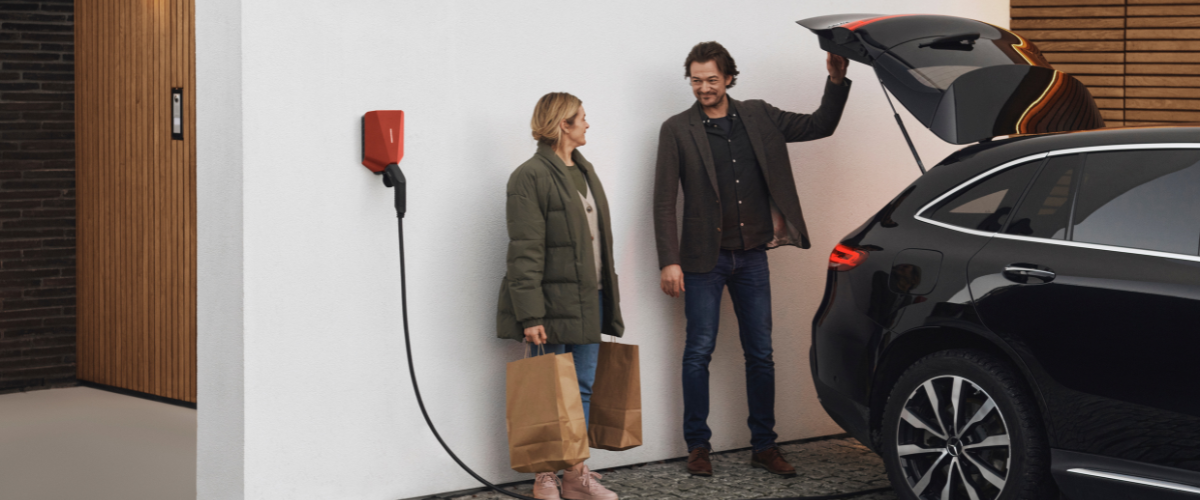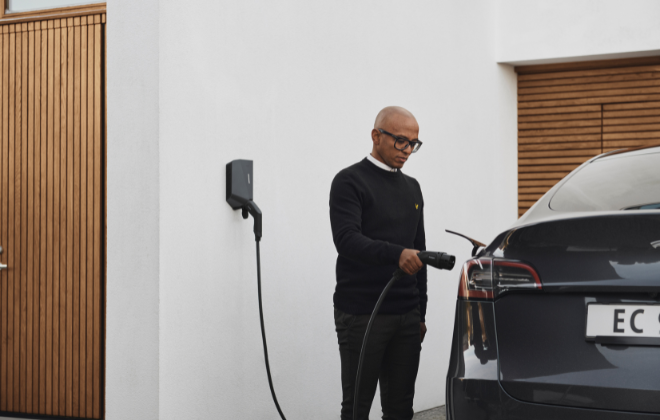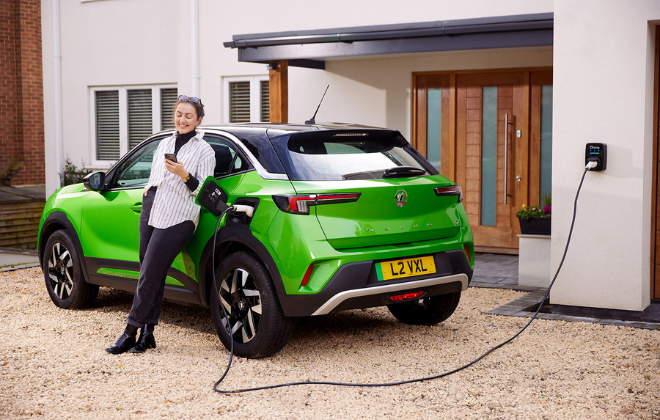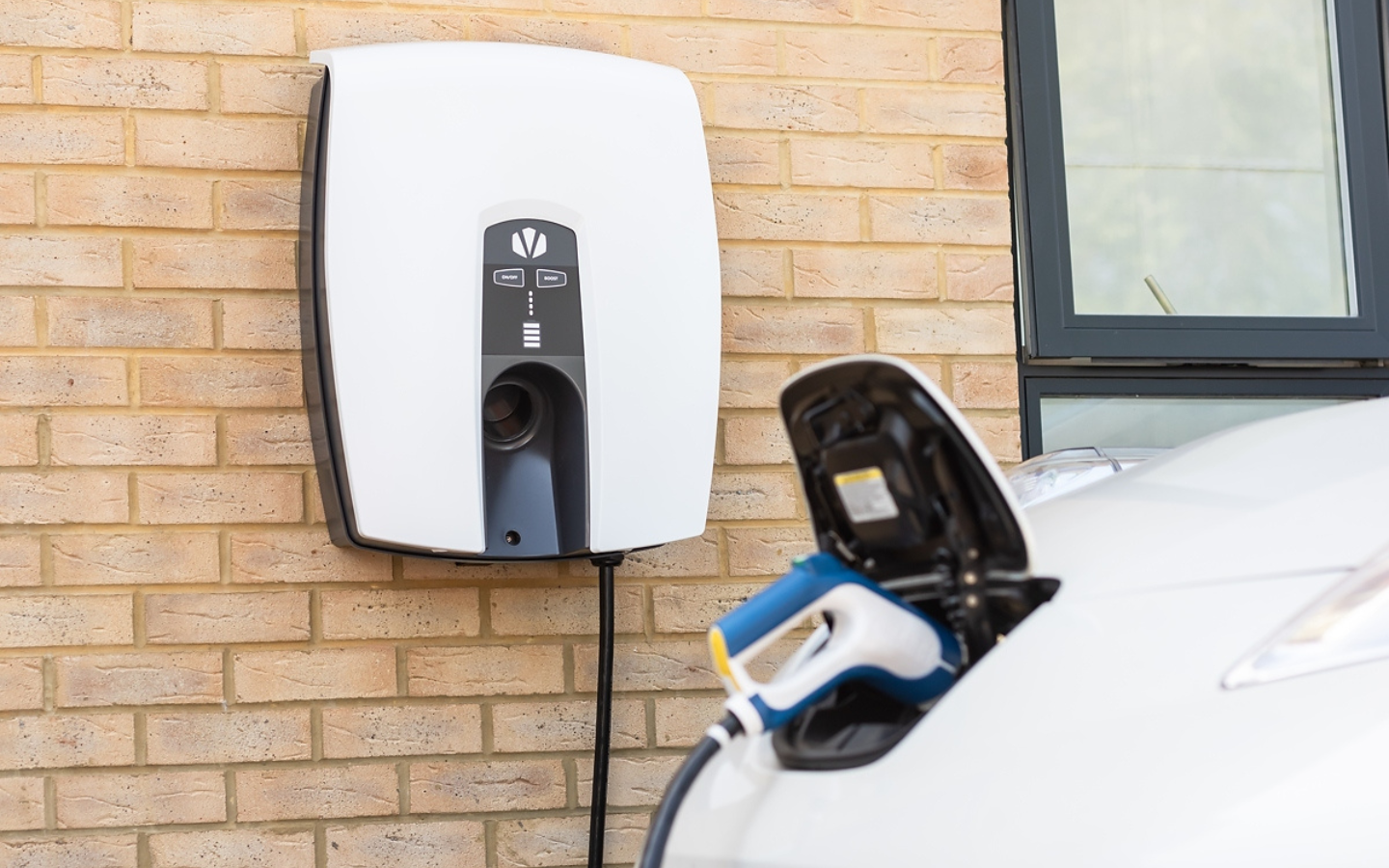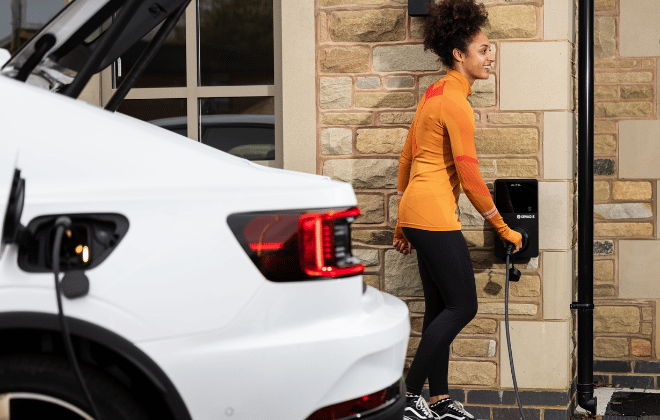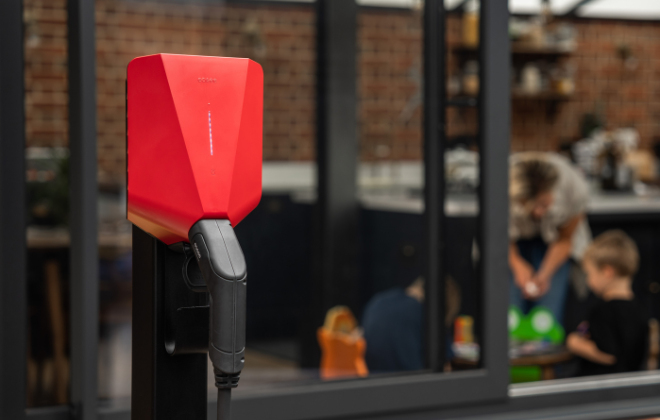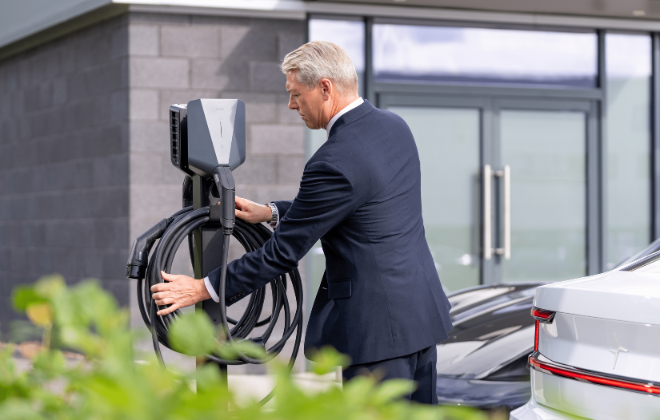

Do new builds have to have electric car charging points?
Do new builds have to have electric car charging points?
From June 2022, all new build homes and buildings in England became legally required to have electric car charging points, whether residential or commercial, as part of the Part S building regulations. So, yes, in 2024, all new builds have to have electric car charging points installed on the property – but only if they have an associated parking space.
Certain exemptions and conditions do apply, so keep reading to learn about the ins and outs of the Part S building regs, the advantages of EV chargers at new build properties, and why the new regulations have come into effect.
EV charging regulations new build homes – what you need to know:
What are the Part S Building Regulations in relation to EV charging?
The Part S Building Regulations state that all new build properties with associated parking need an EV charger, whether residential or non-residential, as well as properties undergoing major renovation. Under the new EV charging requirements, it’s important to note that the requirements are different for differing property types.
Who exactly is impacted by the new build regulations?
- New build residential homes
- Supermarkets
- Buildings undergoing large-scale renovations with over ten parking spaces
- Commercial/workplace properties
What are the details of the electric vehicle charging point building regulations?
Residential homes:
- Any new residential homes in England that have associated parking must have an EV charger installed on the property.
- Any residential building undergoing major renovations that have more than ten parking spaces has to have an EV charger installed by the end of the renovations. One charger per dwelling is required, and cable routes need to be in place for the remaining parking spaces.
Commercial/non-residential buildings:
- If the new building has more than ten parking spaces, the property must have at least one EV charger. Cable routes need to be in place for 20% of the total number of parking spaces (one in five).
- Any building undergoing significant renovations that have more than ten parking spaces is under the same installation requirements as the above.
Are there any exemptions to these Part S Building Regulations?
- Wales, Scotland and Northern Ireland do not fall under this regulation, meaning they are exempt from having to install electric vehicle chargers at new builds. However, it’s likely that they will do so in the future.
- Another exemption is if the installation costs more than 7% of the total costs of the major renovation or if the cost for each charge point is greater than £3,600 for a new build, then the residential building is exempt from having to install an electric vehicle charger.
- Covered car parking only has to provide cable routing rather than a new build house electric car charger.
Are the new build regulations Part S the same as the Smart Charge Point regulations?
While both are electric car charging laws, no, the Electric Vehicle Smart Charge Points Regulations 2021 are not the same as the Part S Building regs. The smart electric vehicle charging regulations are related directly to the charge points themselves, ensuring that all EV chargers in the UK have smart functionality. In comparison, the Part S building regs are regarding new build houses requiring electric car charging points.
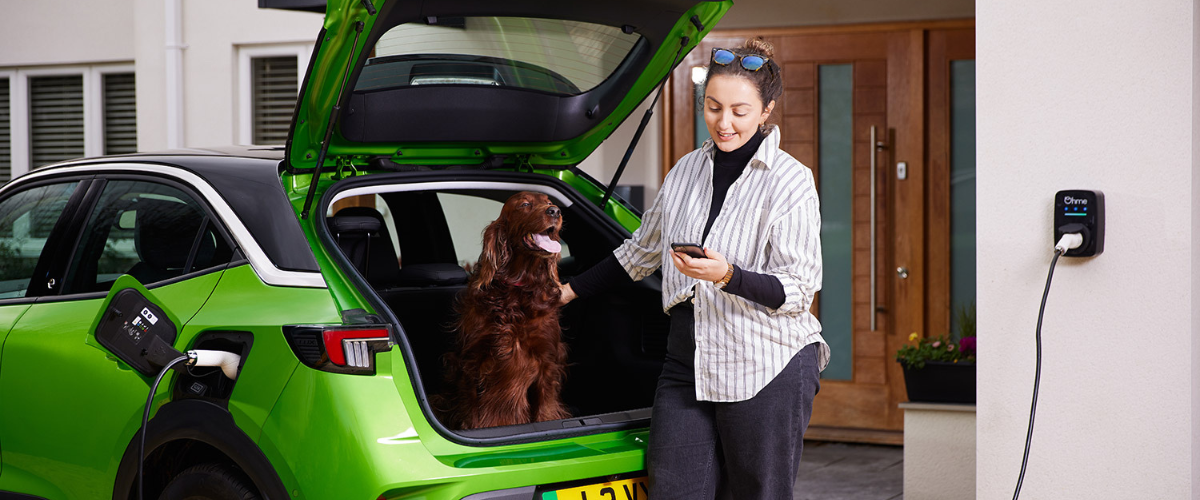
Why have the Part S building regs come into effect?
The reasoning behind the building regulations for EV charging is to support the UK’s aim of becoming net zero by 2050 – which has been introduced to cut carbon emissions and, in turn, improve air quality and reduce air pollution.
Of course, certain measures are already a go, such as a ban on the sale of new petrol and diesel cars in 2035, which is fast approaching, but the government is seeking alternative ways to ensure the net zero is met – including the Part S new build regulations.
By pre-installing these electric car chargers, it should increase the uptake in EV adoption, leading to a greener way of transport. It’s said that the EV charging regulations new build homes should add 145,000 EV chargers per year across England.
What are the benefits of having EV charging points at new build properties?
The inclusion of EV charging infrastructure at new build properties creates benefits for both property developers and future and pre-existing residents:
Property desirability:
As the popularity of electric vehicles continues to grow, those on the property ladder will be increasingly seeking properties with EV charging capabilities, likely opting for those with pre-installed chargers.
By providing electric car chargers for new buildings, developers enhance the appeal and desirability of their properties, attracting potential buyers who prioritise sustainable transportation and want to start taking advantage of cheaper charging at home or the workplace from the get-go.
What’s more, you are adding value to your property – especially if you are renovating. A recent study from Riverdale Leasing found that homes with electric car chargers installed sold for 13% more than the local average.
Futureproofing new buildings:
Installing EV charging points during the construction phase ensures that buildings are prepared for the transition to electric mobility. Future residents will have the convenience of accessing charging facilities without the need for costly retrofitting.
Sustainability initiatives:
By encouraging the adoption of electric vehicles by providing charging facilities, new builds will contribute to a reduction in greenhouse gas emissions and air pollution, creating greener communities.
Cost savings:
Installing new build electric car chargers during the construction phase can be more cost-effective than retrofitting later.
Certain developers may be eligible for the EV infrastructure grant too, which can provide up to £15,000 of grant funding towards certain costs, including wiring and posts.
Summary:
- As of June 2022, new buildings in Great Britain are required to have electric car charging points according to the Part S Building Regs – both for residential and commercial properties. The legal requirement also extends to major renovations of buildings with ten parking spaces.
- The prime minister stated that the rationale behind the building regs part S is to support the UK’s goal of achieving net zero emissions by 2050.
Do you need an experienced EV charger installer for your new build property EV charger installation?
If you want an EV charger installation, click below to get your free home charger quote, or contact us for more information or any queries you may have. We are one of the UK’s leading electric vehicle charging specialists and offer electric car charger new build solutions.
Since 2020, we’ve successfully and safely installed thousands of EV charging points across the UK, earning a rating of ‘Excellent’ on Trustpilot. As an accredited, experienced electric vehicle charger, full-service supply and installation company, we can assist with every step of organising an EV charging solution.
For more information and our latest updates, follow us on Facebook, Instagram, Twitter, LinkedIn and YouTube.
related articles_
Stay up to date on the latest from We power your car_
I consent to receive newsletters from We Power Your Car. Please see our Privacy Policy
